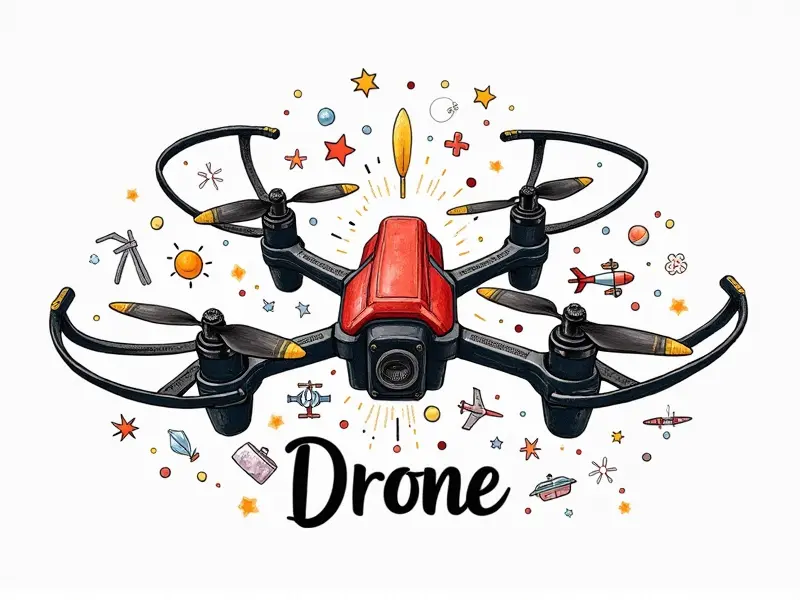Drone GPS accuracy needed?

How Accurate is Drone GPS Today?
The accuracy of drone GPS today varies widely depending on the model and environmental factors. Modern drones, such as those from DJI and Autel Robotics, often boast sub-meter accuracy under optimal conditions. However, real-world performance can be affected by signal interference, multipath effects, and satellite availability.
Understanding Drone GPS Signal Strength
The strength of the GPS signal received by a drone is crucial for accurate positioning. Factors such as urban canyon environments, tall buildings, and natural obstacles like trees can significantly weaken or distort signals. Drones with multiple GNSS receivers (like GLONASS and Galileo) tend to perform better in challenging conditions.
Best Drones for High GPS Accuracy
- DJI Mavic 3: With dual-frequency RTK technology, this drone offers centimeter-level accuracy.
- Autel Evo II Pro: Equipped with a high-precision GNSS module for superior positioning in diverse environments.
- Pixhawk-based Drones: Open-source platforms like Pixhawk can be customized to achieve high GPS accuracy through advanced configurations.
Improving Drone GPS Precision Tips
- Use RTK or PPK Technology: Real-Time Kinematic (RTK) and Post-Processed Kinematic (PPK) systems enhance precision by correcting satellite signal errors in real-time.
- Implement Ground Control Points: Establishing ground control points helps calibrate the drone’s GPS readings for more accurate mapping applications.
- Select Optimal Flight Times: Flying during times when there is less atmospheric interference, such as early morning or late afternoon, can improve signal quality.
What Affects Drone GPS Accuracy?
Several factors influence the accuracy of drone GPS systems. These include:
- Satellite Geometry: The relative positions and angles of satellites affect signal reception.
- Signal Multipath Effects: When signals bounce off surfaces before reaching the receiver, it can cause inaccuracies.
- Environmental Interference: Magnetic fields from power lines or electronic devices can disrupt GPS signals.
Is Better Drone GPS Worth the Cost?
Investing in high-precision GPS technology for drones is often justified for professional applications like surveying, construction monitoring, and precision agriculture. While more advanced systems are costly, they provide significant benefits in terms of accuracy, reliability, and operational efficiency.
Future Trends in Drone GPS Accuracy
The future of drone GPS accuracy looks promising with advancements in RTK technology, integration of multiple GNSS constellations (like BeiDou), and the development of more robust algorithms to handle complex environments. Innovations such as AI-driven error correction will further enhance precision.
Why Does Drone GPS Matter So Much?
The accuracy of drone GPS is critical for applications that require high precision, such as land surveying, crop monitoring, and infrastructure inspection. Even minor inaccuracies can lead to significant errors in data collection and analysis, impacting decision-making processes.
Common Issues with Drone GPS
- Sudden Loss of Signal: This can occur due to signal blockage or interference from electronic devices.
- Poor Position Fix: Inaccurate initial positioning can lead to unreliable flight paths and data collection.
- Variability in Real-World Conditions: Drones may struggle with accuracy in dense urban areas, forests, or near large structures.
Understanding Drone GPS Error Margins
Drones typically have error margins ranging from a few meters to sub-centimeter precision depending on the technology used. RTK and PPK systems can reduce these errors significantly, making them indispensable for high-precision applications.
Maximizing Drone GPS Accuracy Tips
- Regular Maintenance: Keep drones clean and ensure antennas are free from obstructions.
- Calibrate Sensors: Regularly calibrating the drone’s sensors can improve accuracy over time.
- Update Firmware: Keeping firmware up-to-date ensures that you have the latest improvements in GPS technology and algorithms.
Conclusion
The importance of accurate GPS for drones cannot be overstated, especially for professional applications requiring high precision. While current technologies offer impressive accuracy under optimal conditions, continued advancements in RTK, PPK, and multiple GNSS integration will further enhance performance. Understanding the factors affecting GPS accuracy and implementing best practices can significantly improve drone operations and data reliability.

